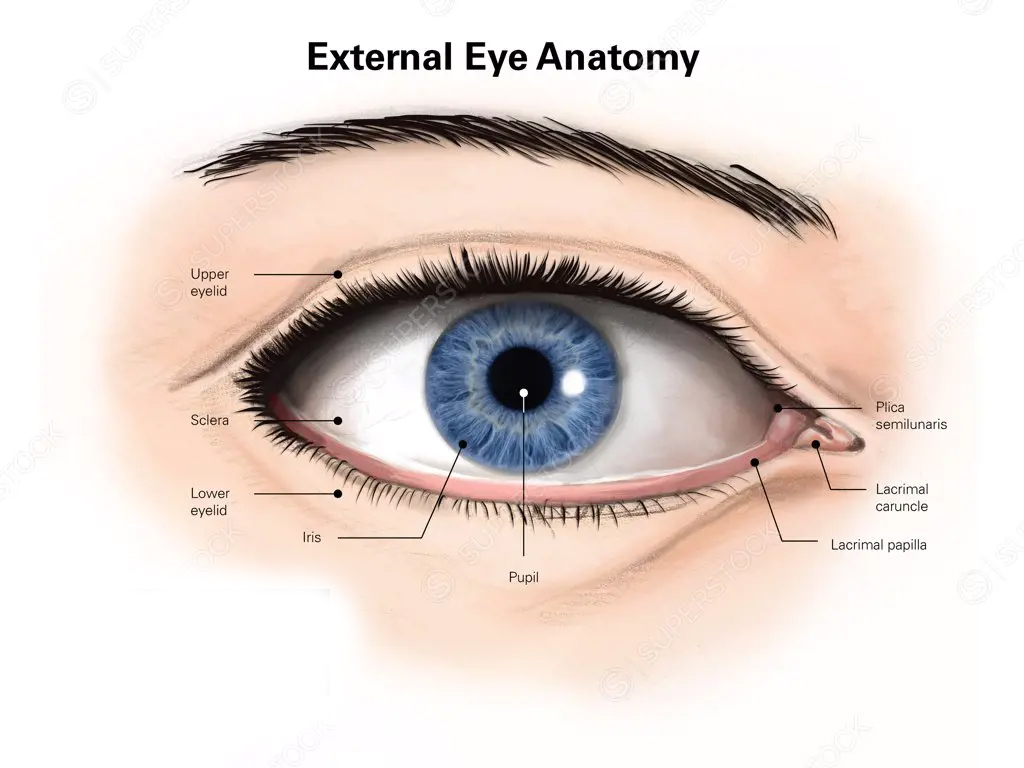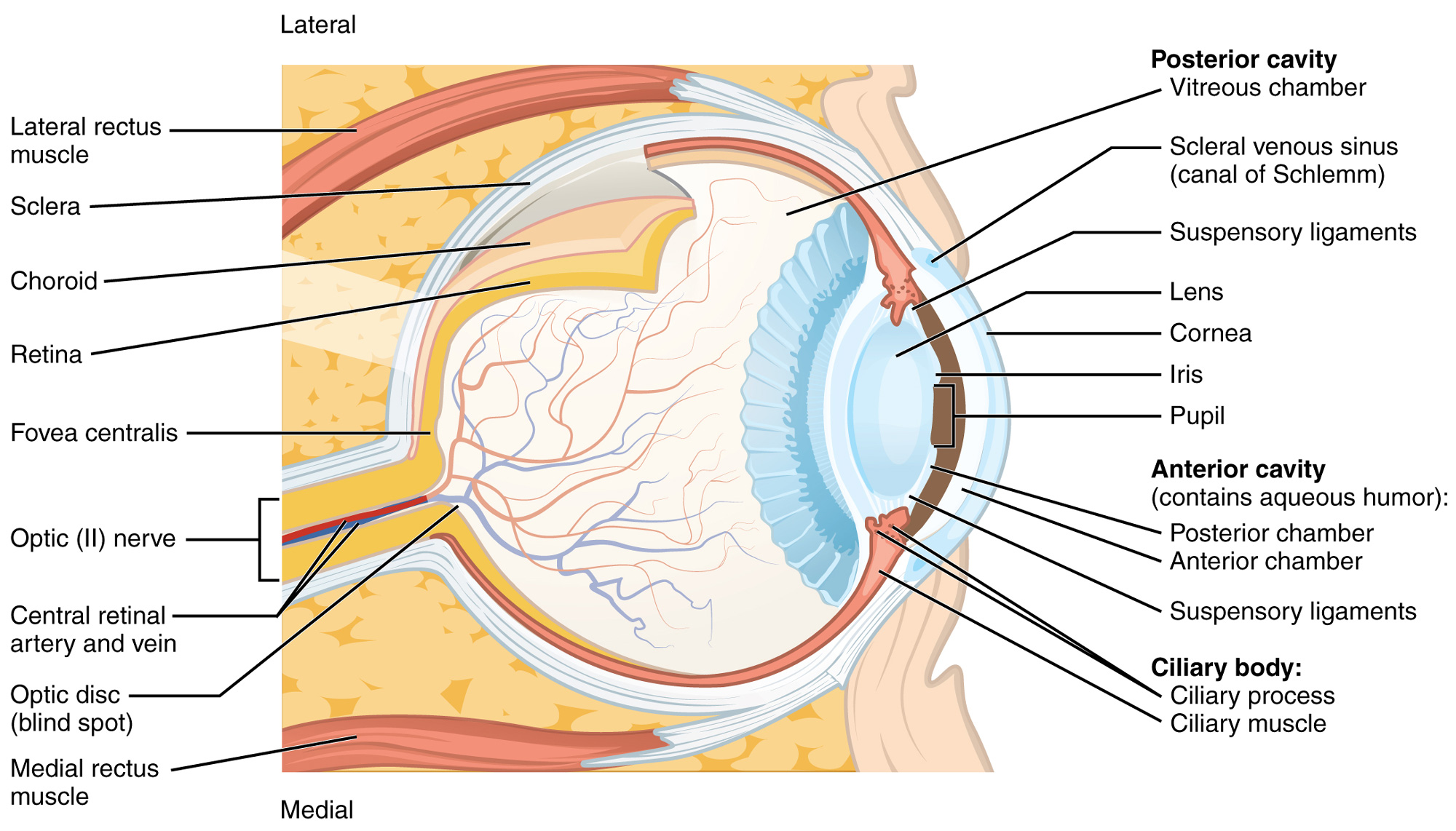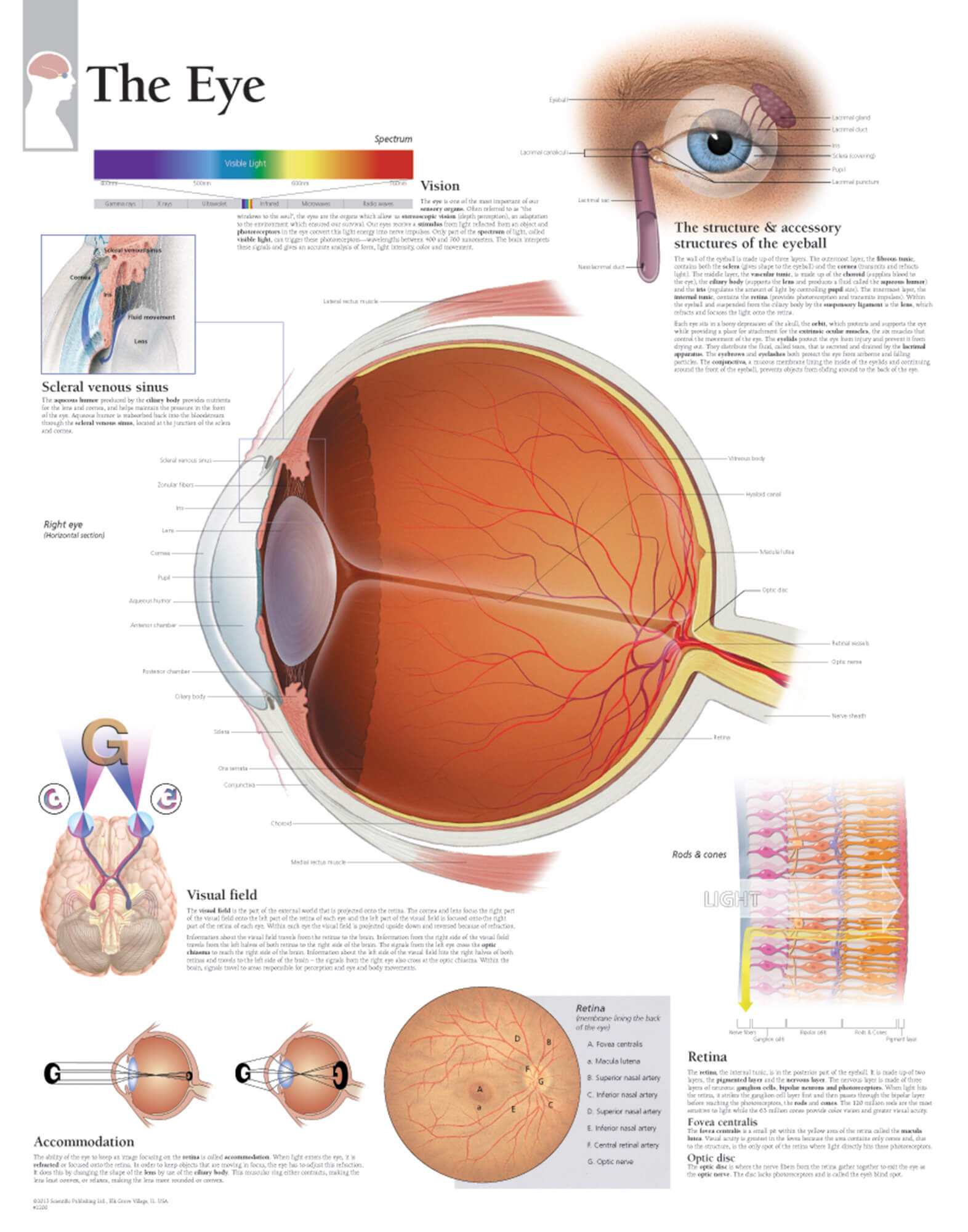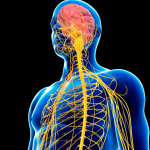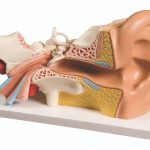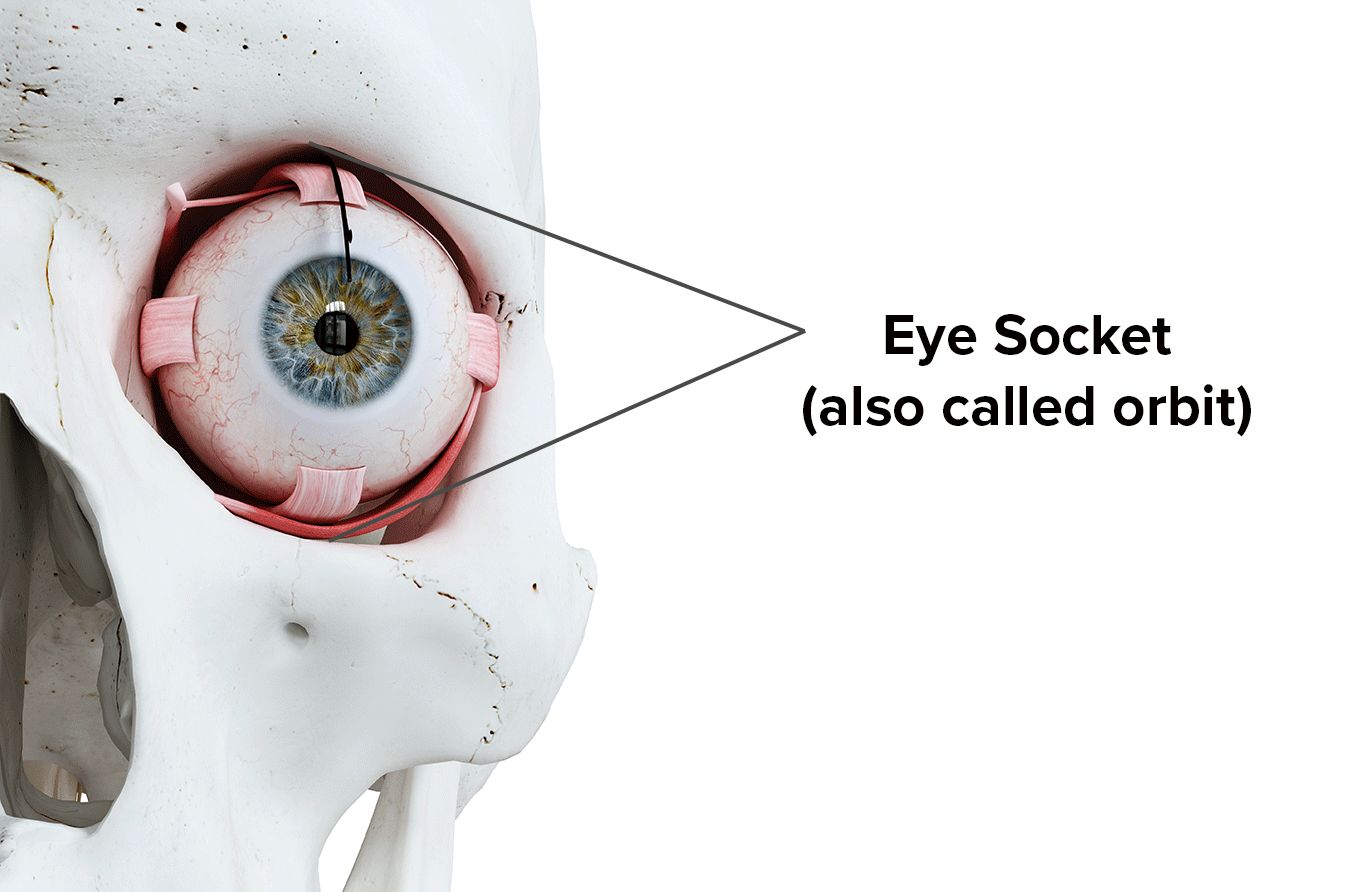
What are eyes?
Your eyes allow you to see the shapes and colours of the world around you. They are sometimes described as your windows to the world.
What do my eyes do?
Your eyes gather light into electrical signals that your brain converts into what you see (your sight).
Along with your ears, muscles and joints, your eyes also help coordinate your balance.
Parts of my eye
Your eye is ball shaped and about 2.5 cm wide. It is not perfectly round.
Your eye contains special structures, which help to capture light.
If you look at one of your eyes in the mirror, you can see:
- the iris, which is the coloured part of your eye
- the cornea, which is the clear dome over your iris
- the pupil, which is the black hole in the centre of your iris
- the sclera, which is the white part of your eye
- the conjunctiva, which is a thin layer of tissue that lines the inside of your eyelids and the whites of your eyes (sclera)
Other parts of your eye that you can’t see are:
- the lens, which sits behind your pupil
- the retina, which is the inside of the back of your eye
- the optic nerve, which is at the back of your eye
How does my eye work?
Light enters your eye through your cornea. It then travels through your pupil and lens.
The cornea and lens focus the light onto your retina.
The retina is a layer of nerve tissue that includes:
- rods, which identify shapes and movement
- cones, which detect detail and colours
Rods and cones absorb light signals and change them into nerve impulses. These nerve impulses, or messages, travel along your optic nerve to your brain.
Your brain then recognises these nerve impulses, or messages, as a visual image.
Eye problems
It is important to take care of your eyes, to prevent problems such as poor vision, blindness, and eye infection.
These problems can impact your education, employment, social life and mental health.
Vision Impairments
Your vision can be damaged by:
- disease or infection
- accident or injury
- diabetes
- dermal fillers
- ageing
This may lead to blindness or vision impairments such as:
- short-sightedness
- far-sightedness
- astigmatism
- presbyopia
Some eye conditions can cause damage to your vision, such as:
- macular degeneration and other retinal diseases
- cataracts
- glaucoma
- diabetic retinopathy
- eye cancer
Some people have genetic vision impairment. This can be present when they’re born, or soon after birth.
Eye infections
Eye infections such as conjunctivitis, trachoma , keratitis and stye can be caused by:
- bacteria
- viruses
- allergies and irritants
- poor hygiene
Eye infections can cause red, itchy, painful eyes, and can sometimes cause vision loss if not treated quickly.
Tips for healthy eyes
Most eye problems can be prevented. To keep your eyes healthy:
- have your eyes checked regularly
- protect your eyes from sunlight — wear a hat and sunglasses with UV protection
- protect your eyes from injury at home and work
- clean your hands and avoid touching your eyes to prevent infection
- limit your use of devices (computer or phone) to prevent eye strain and dryness
- eat healthily — green leafy vegetables, fish, linseeds, and some vitamins and minerals can help prevent macular degeneration
- avoid smoking
Getting your eyes checked
Optometrists can help diagnose any vision problems through eye tests. They can also help treat and manage any vision problems. You can book an eye test directly with an optometrist (eye doctor). You don’t need a referral from your GP to see an optometrist.
Medicare will pay for your eye test if your optometrist bulk bills.
Eye tests are paid for:
- once every three years for people under 65 years
- every year for people aged 65 years and over
People with diabetes and Aboriginal and Torres Strait Islander people, should have eye tests every two years.
Even if you aren’t worried about your vision, it is important to have your eyes checked regularly to:
- monitor your eye health
- identify any problems you may not notice
You should see an optometrist (eye doctor) if you’re worried about changes in your vision. For many people with blurry vision, glasses or contact lenses will help.
